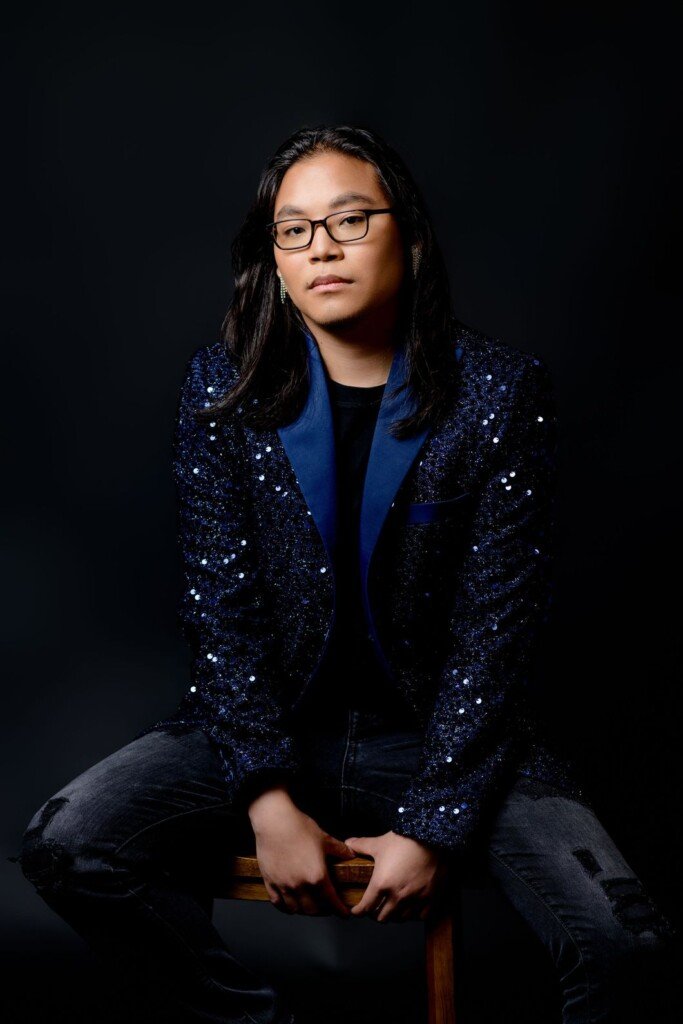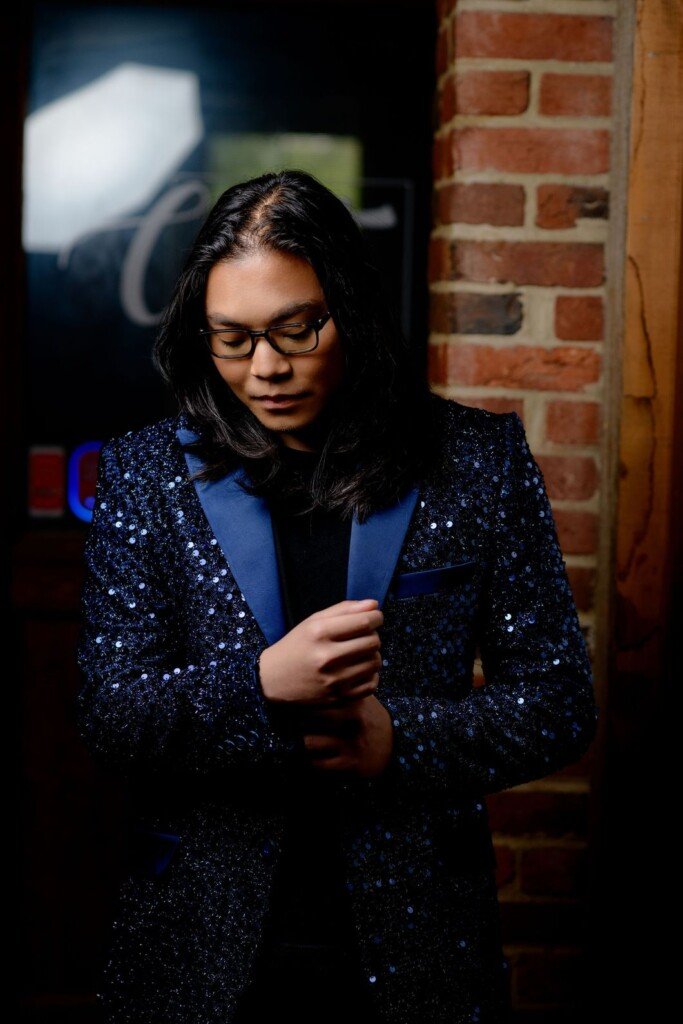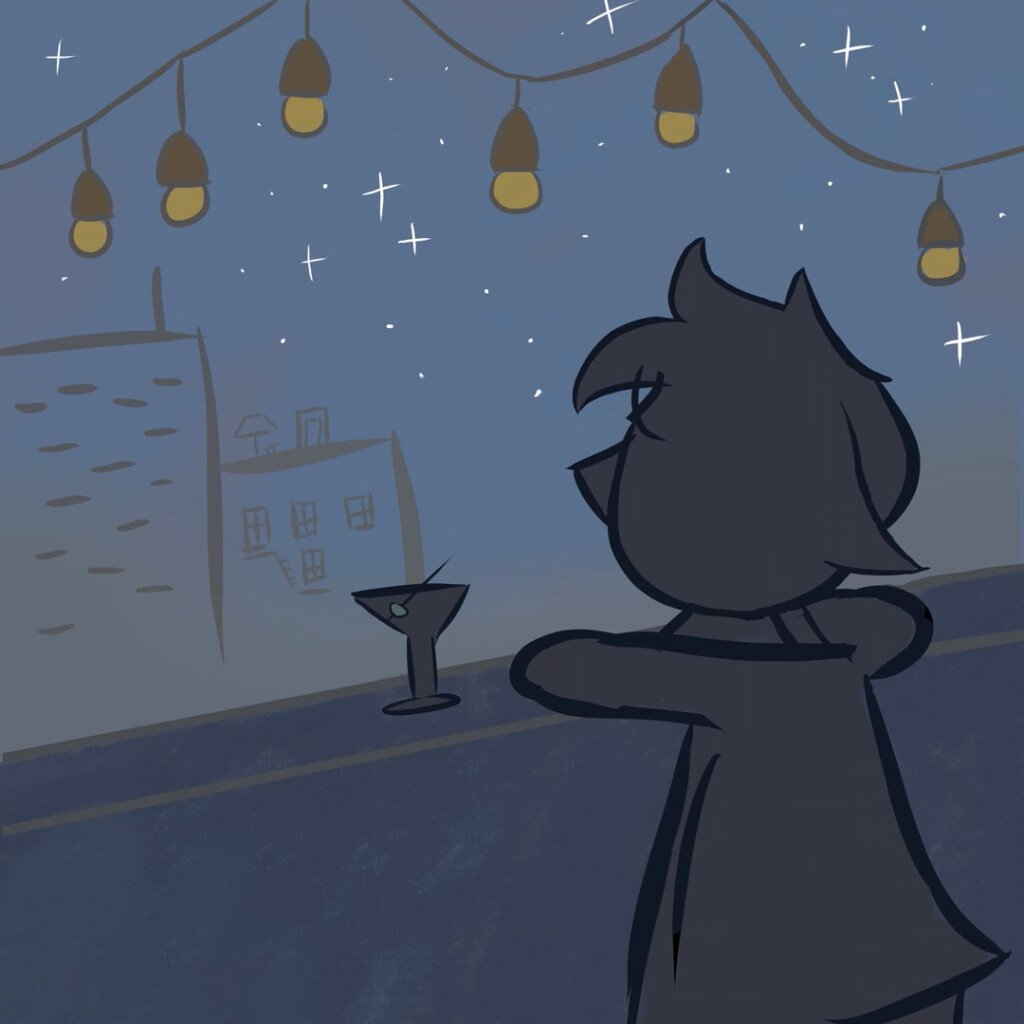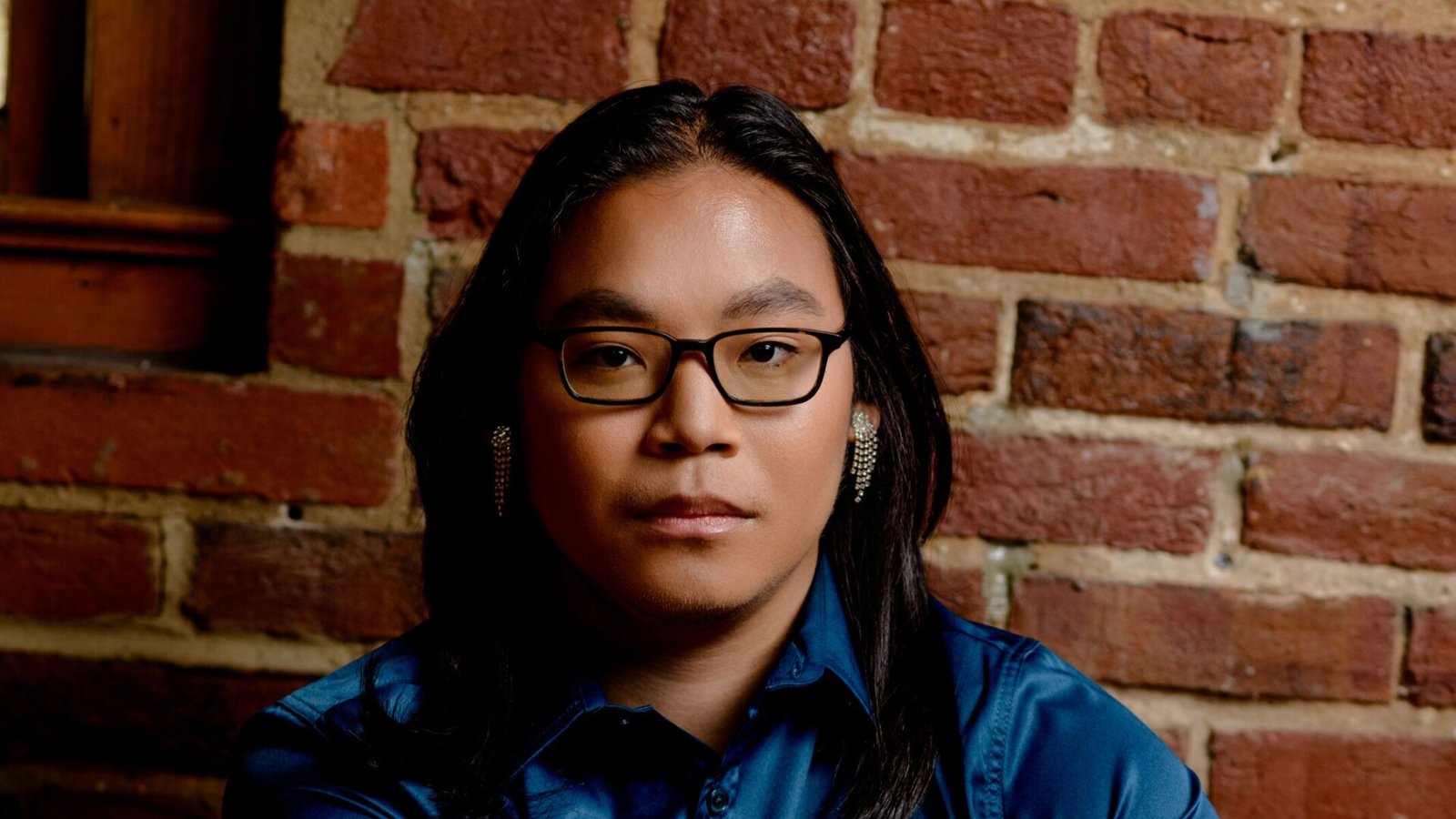From Maryland, Thammarat is an emerging songwriter, performer, and vocal powerhouse whose music leverages storytelling, nostalgia, memory, and a touch of hopeless romanticism to create an intimate and personal experience for his listeners. His exquisite vocal style, individual to him yet instantly recognizable to others, draws on his natural gift for singing, which he has further refined through years of vocal training. A deep love of social justice, Broadway musicals, and the Barbie Cinematic Universe similarly informs his lyric-writing style. Thammarat’s diverse and “genre-fluid” discography is introspective, romantic, theatrical, philosophical, and, above all else, rooted in collective experience. Check out the exclusive interview below:

1. Your roots can often shape your journey. Can you share a story or moment from your early life that had a significant impact on your path into music?
THAMMARAT: In 2019, the director of the GenOUT Youth Chorus (an LGBTQ+ youth choir I sang with) nominated me to sing at the official plaque dedication ceremony honoring Matthew Shepard, the gay man from Wyoming whose murder in 1998 helped bring LGBTQ+ hate crimes to the forefront of the nation’s consciousness. The event, which took place at The Washington National Cathedral, was a mega HUGE deal, with about 2,000 people in attendance and many, many more watching worldwide. I received a standing ovation for my performance—a cover of Josh Groban’s “You Raise Me Up”— as well as a personal thank you from Matthew’s father, Dennis. Josh Groban also got ahold of my performance through a friend of a friend and I received an email from one of his representatives telling me what I beautiful job I did. It was the opportunity to participate in such a historic moment and represent queer youth activists and singers around the world that ultimately led me to pursue a serious career in music.
2. Did your musical journey begin with formal training, or was it more of a personal exploration? How has that shaped your unique approach to your craft?
THAMMARAT: My musical journey started as a personal exploration. In middle school, I got accepted into Interlochen Center for the Art’s Summer vocal arts program and began studying opera and musical theater. I joined a whole bunch of singing ensembles, did a few gigs, and competed in various competitions.
During the pandemic, I began to explore pop and R&B vocal styles with Berklee College of Music’s 5 -Week Aspire program and also took my first songwriting course with Berklee Online. After that, I started writing my own songs and developing my own singing style.
My background in classical and musical theater definitely shapes how I sing. A lot of people say I remind them of Ben Platt and Josh Groban. I also spend a lot of time watching and analyzing vocal giants like Whitney Houston, Celine Dion, Mariah Carey, Beyoncé, and other experts of their craft to see what I can learn from their singing styles.
My approach to songwriting is much less influenced by other artists and more so by my writing process.
3. Who were some of the most influential figures in your early musical life, and how did they inspire your sound? Also, what’s the story behind choosing the name Thammarat’?
THAMMARAT: I was born in Thailand and Thammarat is the name I was given at birth. I am not solid on the meaning but one interpretation I’ve read is “jewel of the sacred law (dharma).” Since law, social justice, activism, and human rights play a huge role in my everyday life (my American name is Brennan, an ode to Justice William Brennan), Thammarat felt perfect as an artist name.
4. What do you believe sets your music apart? How would you describe your sound to someone discovering you for the first time, and what emotions or experiences do you hope to evoke in your listeners?
THAMMARAT: Honestly, I think my voice is what sets my music apart. I have not found another male vocalist who does quite the same things I do when I sing and that often surprises my listeners. People don’t expect me to sing the way I do (I’m very shy). But music is an extremely spiritual and embodied experience for me, and I want to bring other people on that ride as well. I consider it a “success” if I can help provide emotional catharsis or shift the way someone else is feeling emotionally and physically. Changing people’s perceptions of me and/or themselves for the better is a core part of my practice.

5. For most artists, originality is first preceded by a phase of learning and, often, emulating others. What was this like for you? How would you describe your own development as an artist and music maker, and the transition towards your own style, which is known as POP?
THAMMARAT: I have always possessed a natural gift for singing and an aptitude for learning new vocal techniques. I learned to riff by singing Baroque art songs. I learned to do vocal flips by emulating fellow artists. I learned vibrato from my mom (who is not a singer but does tend to quiver her voice when she’s exciting). I am continuously soaking in inspiration from the people around me and my artistry is a amalgamation of all these influences (combined with hours and hours of singing to pass the time). The fact that I fit into the pop genre is more a reflection of my taste in musical style and musical influences than it is a conscious effort to fit into a specific genre.
6. Music often transcends entertainment. What’s your view on the role and function of music as political, cultural, spiritual, and/or social vehicles – and do you try and affront any of these themes in your work, or are you purely interested in music as an expression of technical artistry, personal narrative, and entertainment?
THAMMARAT: I have always been, and will continue to be, a firm believer that music is political in nature and that the role of a socially engaged artist is to facilitate positive and life-affirming change. When I write a song and share it with the world or open my mouth and sing something, I am inviting people into my world. The world I’ve constructed for myself, and the world I am showing others, is a reflection of my beliefs—-which makes my story and existence inherently political. And I definitely think music is a social vehicle. When others choose to go along for the ride, they are engaging their capacity to feel and experience changes in emotion.
7. Do you feel the rewards of your musical career match the energy and passion you invest in it, or are there different kinds of fulfillment you’re still seeking?
THAMMARAT: I obviously appreciate when others recognize my work but I cannot rely on them or external validation to make me feel empowered. Only singing can do that! I invest a lot of energy and passion into my work….but I would do that even if I thought people were ignoring me or not paying attention.
8. Can you walk us through your creative process? From the first spark of an idea to the finished track, what’s the most essential part of your process, and how do collaboration or external influences shape your work?
THAMMARAT: When writing songs, I draw on my love of social justice, queer romance novels, and creative storytelling. I am a big fan of free writing as a method for generating lyric ideas,
and I frequently improvise top-line melodies on the piano, in the shower, and on the road. This usually gets my brain flowing, and from there, I can start structuring some semblance of a verse or chorus. Sometimes, the song comes super fast, and I’m able to keep generating ideas for sustained periods of time. But most days, I will stop writing after 10 minutes and begin working on a different song to see what new things I can add or take away.
Collaboration is a huge part of my process as well. I’ve tried doing this all on my own and it didn’t work out :)
9. What’s been the most challenging hurdle in either your personal life or music career, and how has it shaped you as an artist?
THAMMARAT: I have ADHD, anxiety, and non-verbal learning difficulties. These frequently make it difficult for me to communicate with other people and understand complex social situations. However, music is the space where I feel liberated from those challenges. It’s almost like I’m a different person when I’m singing or writing a song. I channel something ancient, powerful, and deeply human and that helps me connect with people (and myself) in ways I ordinarily cannot.
10. On the flip side, what moment or achievement in your career so far has made you feel the proudest, and why? And let’s talk about your latest release and future plans.
THAMMARAT: Achievement-wise, I am most proud of the Matthew Shepard performance…but I’m also personally proud whenever I come out of any performance! Being a musician or creative means opening myself up to criticism on the daily, most of which comes from me. But each performance I do, each song I write, each time I open my mouth and sing is a reminder of the beautiful journey I’m on and that I’m doing what I love.
I have a new song coming out by the end of summer called “Single Umbrella.” Stay tuned!
STAY IN TOUCH:
INSTAGRAM | SPOTIFY | BANDCAMP | TIKTOK | WEBSITE | YOUTUBE


